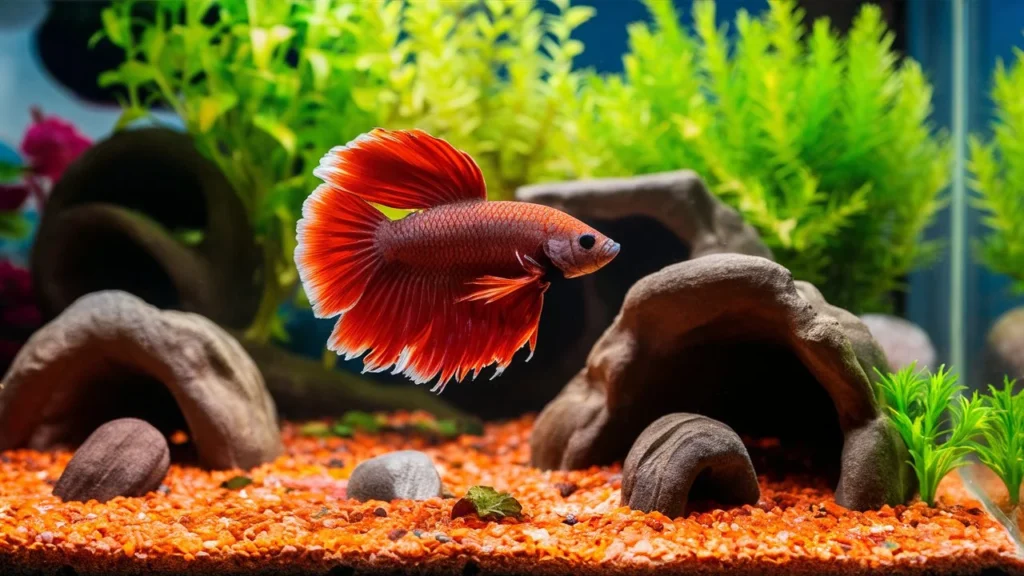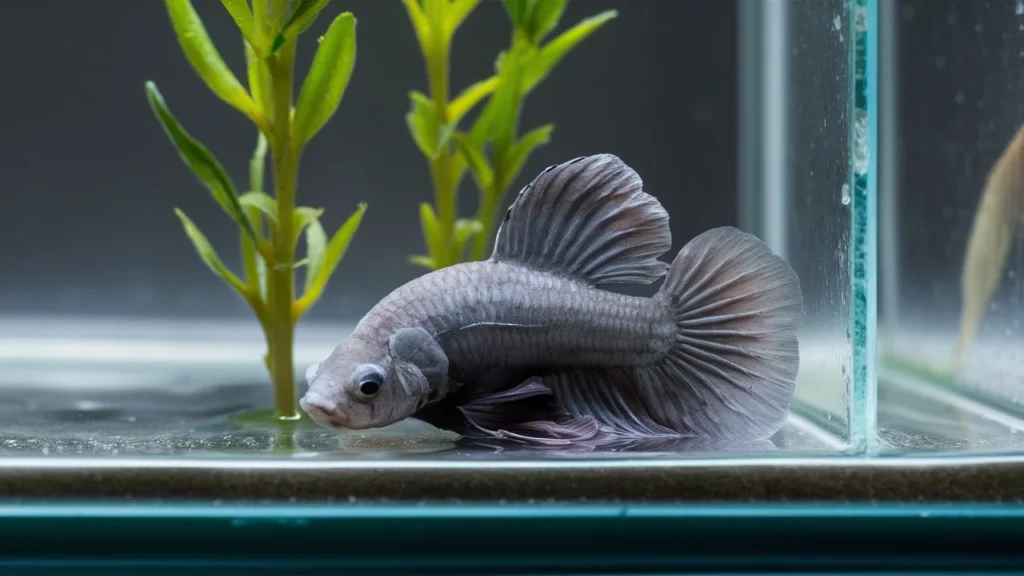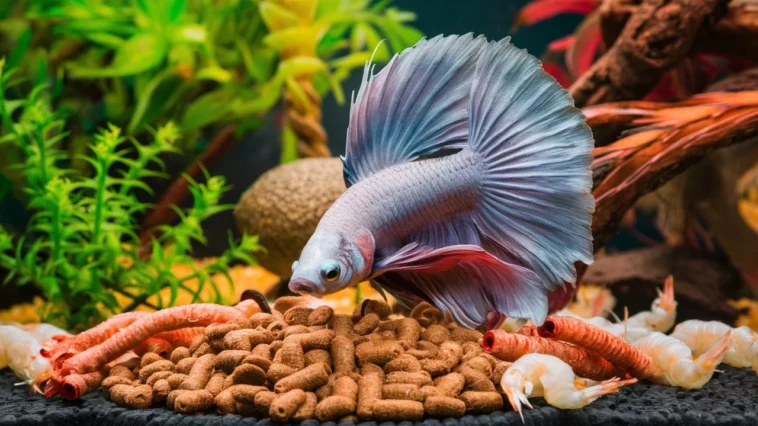Betta fish, also known as Siamese fighting fish, are beloved for their dazzling colors and unique personalities. However, many people underestimate the complexity of caring for these little creatures. While fish might not express emotions in the same way as dogs or cats, they can still experience stress and other emotional states. This brings us to the question: “Can Betta fish get depressed?”
Overview of Betta Fish as Pets
Betta fish are often chosen for their striking appearance and relatively low maintenance needs. They are solitary fish, known for their aggression toward other bettas, which makes them ideal for single-species tanks. Despite their small size, bettas have big personalities and require proper care to thrive.
Common Myths About Fish Emotions
Many people believe that fish are incapable of emotions or that they only have basic instincts. However, studies have shown that fish can experience a range of emotions, including fear, stress, and possibly even depression. These emotions is key to providing a better quality of life for your betta fish.
Betta Fish Behavior
To recognize if your betta fish is depressed, it’s essential to understand their natural behavior and how they interact with their environment.
Natural Betta Fish Behavior in the Wild
In the wild, bettas live in shallow waters like rice paddies, slow-moving streams, and ponds in Southeast Asia. They are territorial by nature and prefer to establish their own space. In this environment, they are active, hunting for food and exploring their surroundings.
How Environment Affects Betta Behavior
A betta’s environment plays a significant role in its behavior. In a well-maintained tank with plenty of space, hiding spots, and stimulation, a betta will display its natural behaviors such as flaring, exploring, and interacting with its surroundings. Conversely, a poor environment can lead to stress, lethargy, and even depression.
What is Depression in Betta Fish?
Depression in betta fish, while not identical to human depression, can be seen as a state where the fish exhibits abnormal behavior due to poor living conditions or a lack of stimulation.
Definition of Fish Depression
Fish depression is a term used to describe a set of behaviors in fish that indicate they are not thriving. This can include a lack of activity, disinterest in food, and other signs of distress.
How Depression Manifests in Betta Fish
In betta fish, depression might manifest as a lack of swimming, a refusal to eat, or a tendency to hide for long periods. Their vibrant colors may also fade, which is a physical sign of stress or unhappiness.

Signs Your Betta Fish May Be Depressed
Identifying depression in betta fish involves observing their behavior and looking for specific signs.
Lack of Activity
One of the most common signs of depression in bettas is a decrease in activity. If your usually active betta starts spending most of its time at the bottom of the tank or in hiding, it may be a sign of depression.
Loss of Appetite
A depressed betta may lose interest in food, which can lead to weight loss and further health complications.
Dull Colors
Betta fish are known for their bright, vivid colors. When a betta is stressed or depressed, these colors can become dull, indicating that something is wrong.
Hiding or Lethargy
If your betta is hiding more than usual or appears lethargic, this could be a sign of depression. Bettas are typically curious and active, so a significant change in this behavior is cause for concern.
Causes of Depression in Betta Fish
Several factors can contribute to depression in betta fish. You can prevent and solve this problem by being aware of these reasons.
Poor Tank Conditions
One of the most significant factors that can lead to depression in betta fish is poor tank conditions. This includes inadequate space, dirty water, and lack of proper filtration. Bettas need clean, warm water to thrive.
Lack of Mental Stimulation
Bettas are intelligent fish that need stimulation. A bare tank with no plants, decorations, or hiding spots can lead to boredom and depression.
Inadequate Space
While bettas can survive in small tanks, they thrive in larger environments where they have room to swim and explore. A cramped tank can lead to frustration and depression.
Isolation from Other Fish
Although bettas are solitary, they still benefit from seeing other fish or having some level of interaction. Complete isolation can contribute to loneliness and depression.
How to Treat a Depressed Betta Fish
If your betta is already showing signs of depression, there are steps you can take to improve its condition.
Improving Tank Conditions
Start by ensuring the tank is clean and the water parameters are appropriate. A clean, well-maintained tank can make a significant difference in your betta’s mood.
Introducing New Stimuli
Add new decorations, plants, or toys to the tank to provide mental stimulation. A change in scenery can help re-engage your betta.
Adjusting Diet and Feeding Practices
Offer a varied diet, including high-quality betta pellets, and freeze-dried or live foods, to stimulate your betta’s appetite and interest.
Consulting a Veterinarian
If your betta’s condition doesn’t improve, it may be time to consult a veterinarian who specializes in fish. There could be underlying health issues contributing to the depression.
Can Betta Fish Get Lonely?
While bettas are not social fish like guppies or tetras, they can still experience loneliness.
Social Needs of Betta Fish
Bettas enjoy interacting with their environment, including their owners. While they don’t need tank mates, they do benefit from some form of stimulation and interaction.
The Impact of Isolation
Complete isolation, with no visual stimuli or interaction, can lead to depression in bettas. Ensuring your betta has a stimulating environment is key to preventing loneliness.

The Role of Diet in Betta Fish Health
A healthy diet is crucial for the physical and mental well-being of your betta.
Nutritional Requirements
Bettas are carnivorous and require a diet rich in protein. High-quality betta pellets, along with occasional treats like bloodworms or brine shrimp, provide the necessary nutrients.
The Importance of a Varied Diet
A varied diet not only keeps your betta healthy but also prevents boredom. Offering different types of food can stimulate your betta’s interest and improve its overall health.
toys, like floating objects, can also provide stimulation.
Common Misconceptions About Betta Fish Care
There are many myths surrounding betta fish care that can lead to improper practices.
Myths vs. Facts
One common myth is that bettas can live happily in small bowls. In reality, they require much more space and care than this.
The Dangers of Over- or Under-Estimating Betta Needs
Both underestimating and overestimating a betta’s needs can lead to problems. Understanding the proper care requirements is essential for keeping your betta happy and healthy.
When to Seek Professional Help
In some cases, depression or other health issues in bettas may require professional intervention.
Identifying Serious Health Issues
If your betta is displaying signs of illness, such as fin rot, bloating, or white spots, it’s important to seek professional help.
When to Consult a Fish Vet
If your betta’s condition doesn’t improve despite your best efforts, a visit to a vet who specializes in fish may be necessary. They can provide tailored advice and treatment options.
Conclusion
Betta fish are more than just a beautiful addition to your home—they are living creatures with emotional and physical needs. Understanding the signs of depression in bettas and taking steps to prevent and treat it can ensure your fish leads a happy and healthy life. By providing a stimulating environment, maintaining water quality, and offering a varied diet, you can help your betta thrive.
FAQs
1. Can Betta Fish Die from Depression?
Yes, if left untreated, the stress from depression can lead to a weakened immune system, making bettas more susceptible to diseases that can be fatal.
2. How Can I Tell If My Betta Fish Is Happy?
A happy betta is active, eats well, displays vibrant colors, and interacts with its environment, such as exploring the tank and flaring.
3. What Toys Are Good for Betta Fish?
Mirrors (used sparingly), floating toys, and interactive items like ping pong balls or leaf hammocks are great for keeping bettas engaged.
4. How Often Should I Clean My Betta’s Tank?
Perform a 25-50% water change weekly and clean the tank every few weeks to remove algae and debris. This helps maintain water quality.
5. Can Betta Fish Live with Other Fish?
Bettas can live with certain non-aggressive species, like snails or shrimp, but avoid housing them with other bettas or fin-nipping fish.





One Comment
Leave a ReplyOne Ping
Pingback:Can Betta Fish See Color?